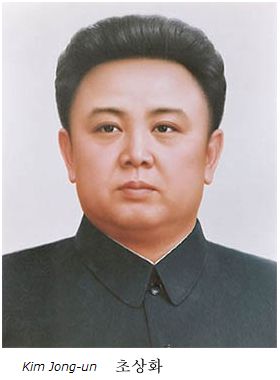-------------------------------------------------------------------------
김정일 독재자,
셋째 아들, 김 왕조의 다음 후계자 입니다
원문 내용
If true, Kim Jong Un, the dictator’s third son and youngest
son, would be the next successor to the Kim dynasty. According
to Merrily Baird, a former CIA analyst and expert on North
Korea’s leadership, Jong Un is a son by a woman named Ko Yong
Hui to whom Kim Jong Il is not beleived to be married.
Of course, the selection of a successor does not necessarily
mean anything in and of itself. Kim Jong Il was appointed to
succeed his father in 1974, 20 years before Kim Il Song passed
away. That appointment was carried out without any formal
announcement being made, just as there are no reports from the
Central Korean News Agency of the Democratic People’s Republic
of Korea (DPRK) to corroborate the the succession appointment.
So it is unclear whether this news, if accurate, has any great
significance. However, indications of Kim Jong Il’s poor
health does lead one to wonder what this might mean for the
future of North Korea and the region more generally.
According to the Yonhap story, Jong Un is only 25 years old, was
educated abroad, and is a fan of NBA basketball. Kim Jong Un is
believed -like his father- to have diabetes , but, given his
youth, this is not as likely to prove fatal in the near term as
might be a power struggle. Presuming that Kim Jong Il is not
long for this world, Jong Un would come to power at about half
the age that his father did and about seven years younger than
his father was when the elder Kim was selected to succeed. Jong
Un will not have established himself as a rightful heir through
many years in positions of power. The fact that there are two
older sons, though to women to which the dictator is not
believed to have been married (the women he married bore him
daughters), could also make Jong Un’s transition more
challenging than his father’s (who was an eldest son.)
It will be interesting to see whether Kim Jong Un will be able
to take and maintain the mantle of power, and what that would
mean for Korea and the region. Of course, I would not expect any
great changes in North Korea regardless of whether Kim Jong Il
passes on and who succeeds. Even if Kim Jong Un were inclined to
be a reformer, this would likely antagonize many people in key
positions. (i.e. When you are involved in as despicable a regime
as that of Kim Jong Il, more power for the people may mean a
rope around your neck.) However, whoever or whatever (e.g. the
military) assumes leadership in the DPRK may radically increase
regional stability if they can merely reduce the government’s
penchant for crisis bargaining (i.e. that common trait Kim Jong
Il stratagem of conducting provocative maneuvers such as missile
and nuclear weapons tests or quiting the Nuclear
Nonproliferation Treaty [NPT] as attempted negotiating
strategies.)
|






